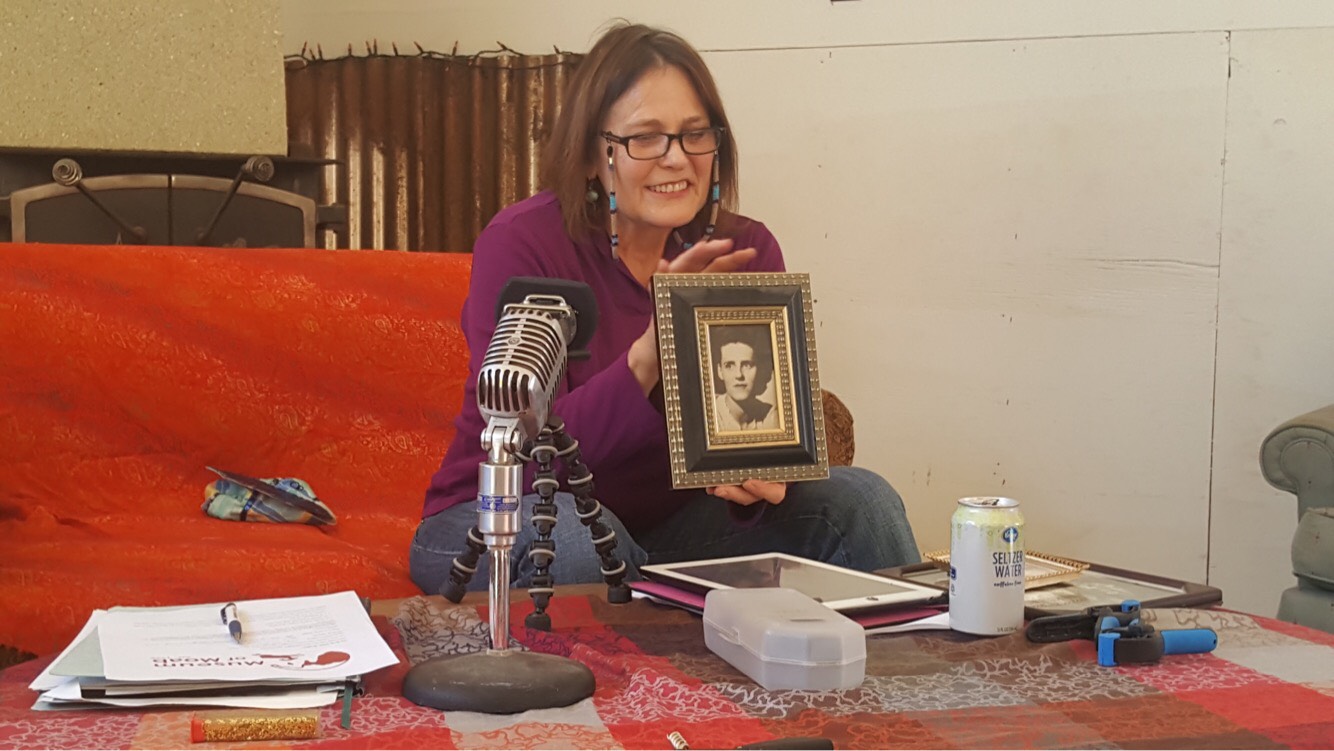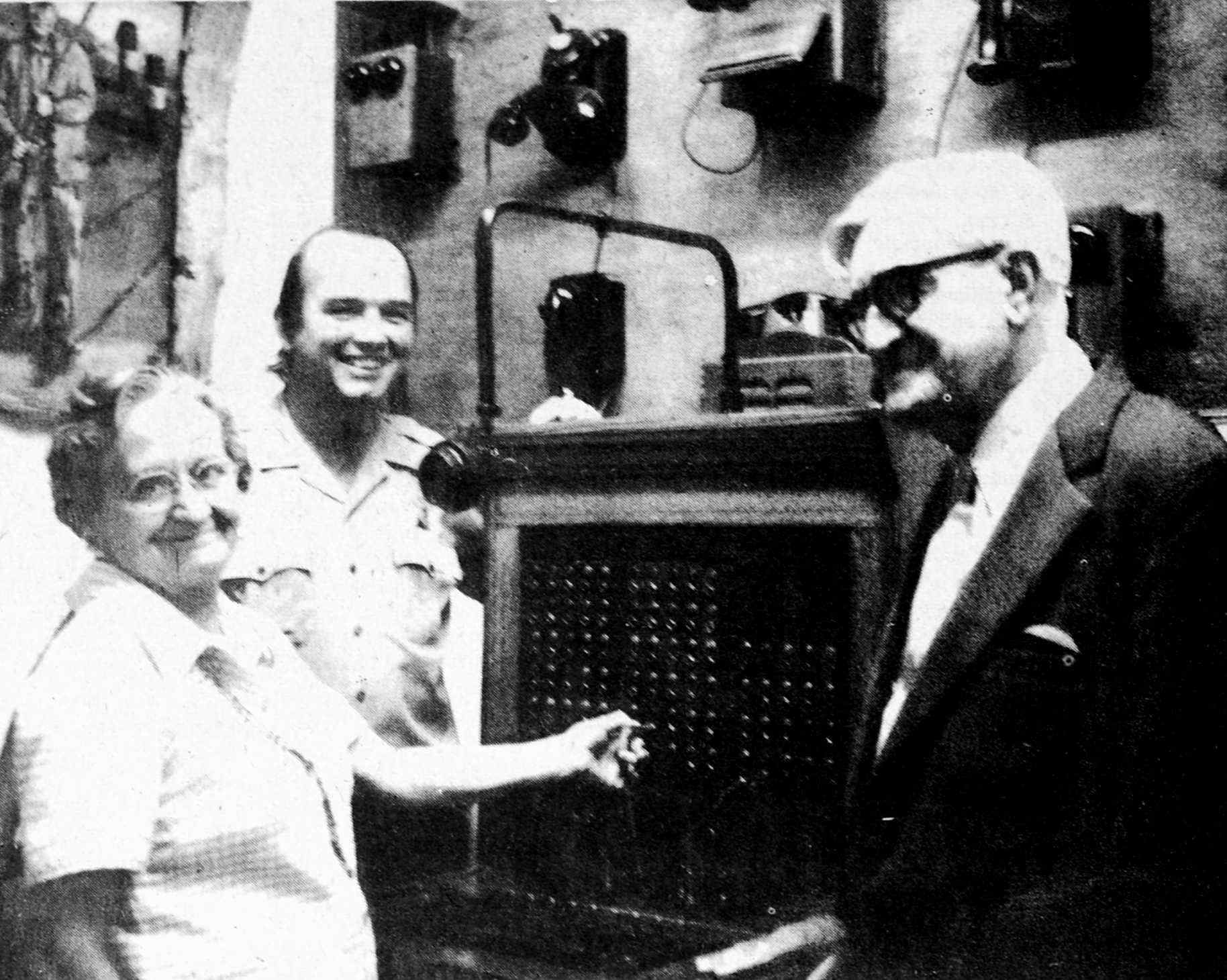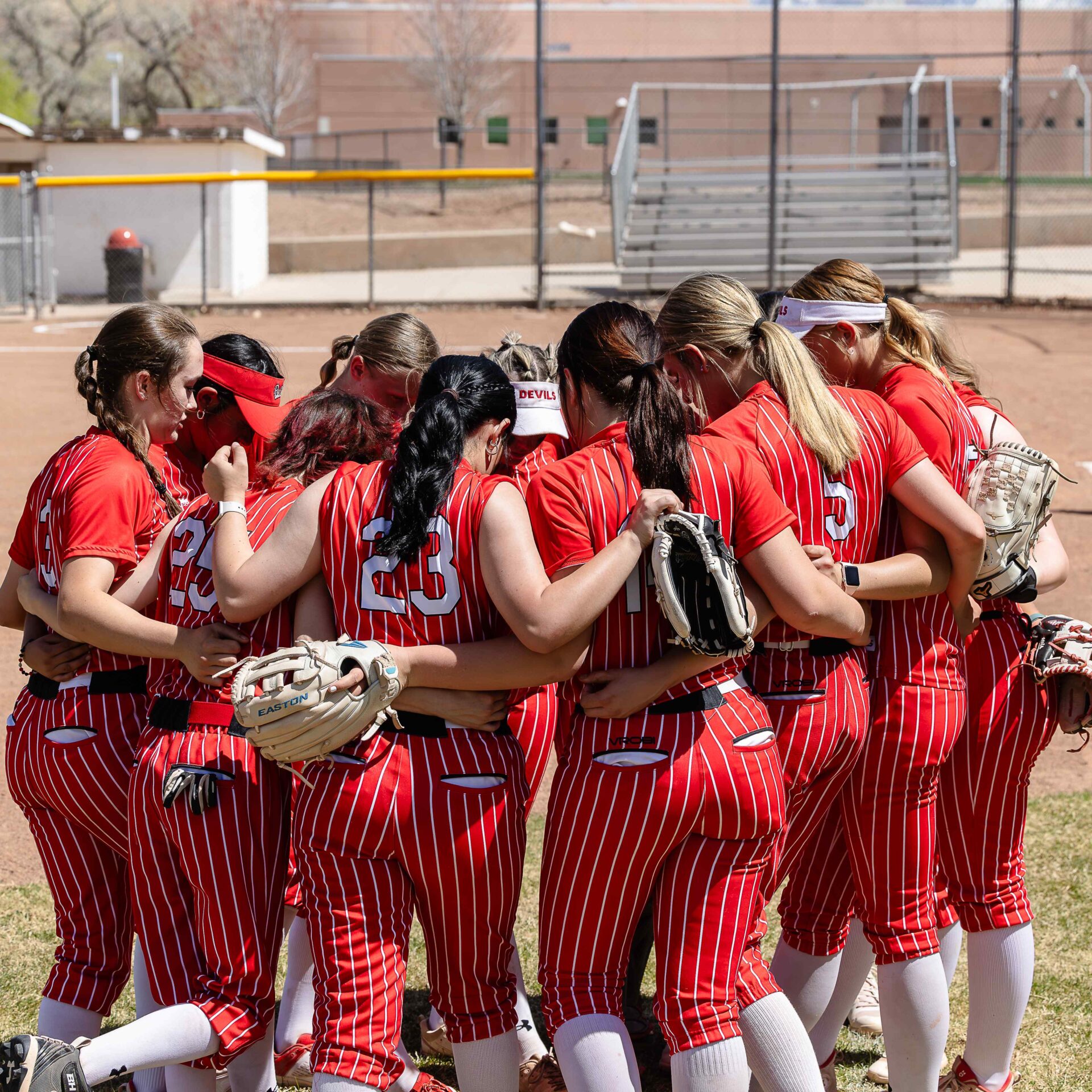Moab families and first-generation transplants have stories to tell about this desert town, and now their voices can be preserved through The Root Cellar Project at the Museum of Moab.
Museum of Moab Development Director Christy Williams Dunton came up with The Root Cellar Project idea as a way to record Moab’s stories after she mulled over a recording of her own family.
“I was always that kid who people gave their stories to, the one that aunts left papers, tapes, genealogies to,” Williams Dunton said. “Years later, I played one of these old cassette tape recordings.”
It was 1969, and her grandmother and her sisters were sitting in the kitchen. As Williams Dunton listened to the recording, she heard her ancestors recollect where their family originated.
“The sound of my grandma’s giggle was startling to hear, not only for its immediacy, though she was long gone, but for the giggle itself. It was my own, and my mother’s. This project came out of that experience,” Williams Dunton said.
The Root Cellar Project began in March, with a storytelling event to celebrate Women’s History Month. It was followed with a second event in April for Earth Day. The project continues with a different theme each month: “In Memoriam” in May, “The Great Moab Roadtrip” in June, and “Pioneers and Pilgrims” in July.
With permission from the storytellers, the oral histories are recorded by the Museum of Moab and archived for public listening online and in the museum.
“Everybody has a story to tell,” Museum of Moab Marketing Director Sarah Sidwell said. “Everyone’s stories are fascinating, and I don’t think people think their stories are fascinating. I encourage people to go, even if they don’t think they have a story to tell, because maybe that will spark something in them that will make them want to share as well. If you don’t have anything, or don’t want to tell a story, storytellers love an audience.”
Michele Hill recorded a story for The Root Cellar Project. She shared her life story as a woman on the river before boating became known for what it is today.
“When I was boating, we were just on the cusp of military rubber and having Udisco (the first manufacturer of a rubber boat),” Hill said, “and then all of a sudden the market was flooded with chemistry being improved, people figuring out the adhesives and materials — and all of these brands were making boats and boat equipment. With my story presentation, I was trying to show this passage of time in the boat world.”
The storytelling event strives to keep the history of Moab, like Hill’s story, alive.
“The project is a way to communicate to those who live far beyond our own time,” Williams Dunton said. “What forms of storytelling last, and what language do you use? Is it possible to convey a sense of the incredibly dynamic time we are living in? All those questions were percolating (for me). The project ripened as the oral tradition revealed itself as one of the most durable ways to communicate through the generations.”
Sidwell said community support is making the project possible.
“This is everyone’s museum and these are the stories of Moab. Everyone is more than welcome to come and participate in telling the story of Moab,” Sidwell said.
The Root Cellar Project is organized and facilitated by the museum at the Helipad each month until sometime in 2019, when the museum may undergo a change to provide a new space for the event at a future date.
In the meantime, the museum is archiving the stories at the museum shared by the people who attend the monthly events at the Helipad.
The museum hopes to attract more people to The Root Cellar Project, and facilitators said people may share any story, even if it’s not related to the theme.
“People are shy about telling their stories,” Williams Dunton said. “They don’t think that they matter, and I’m here to remind them that they really do. They can help people remember who they are, and how to get over pains, so come and share.”
Listen in, or archive a story, at the Museum of Moab
“The project is a way to communicate to those who live far beyond our own time.”




